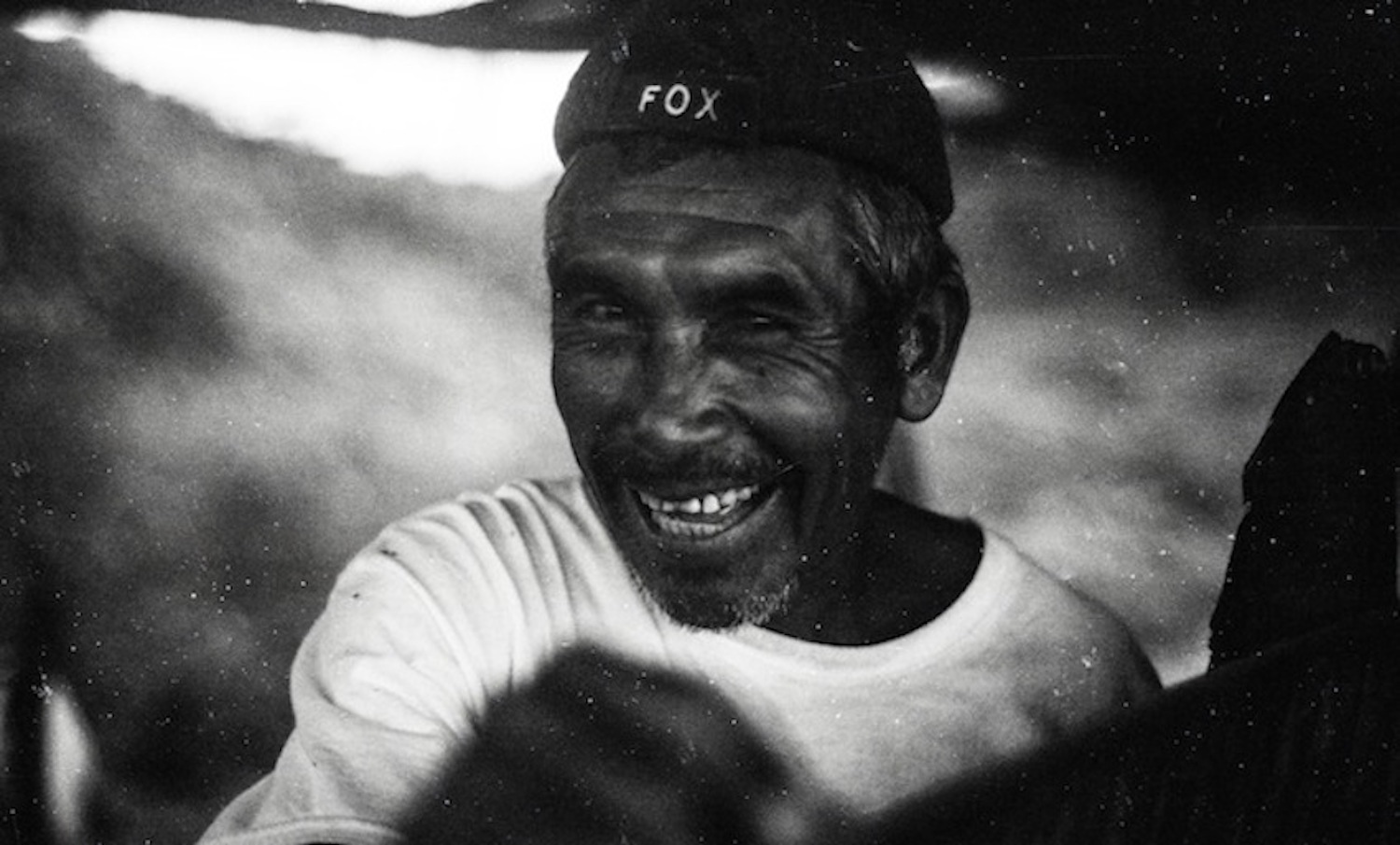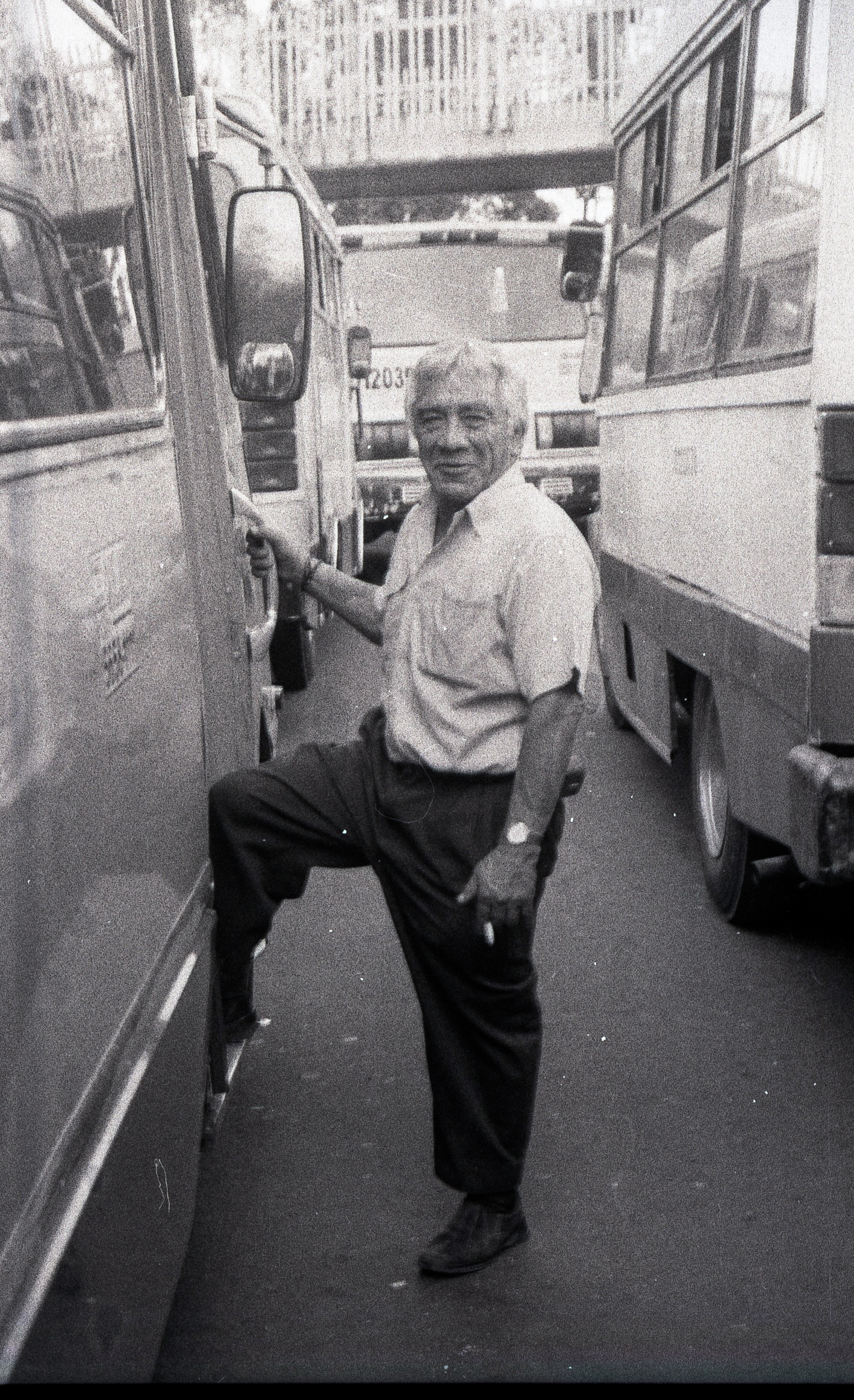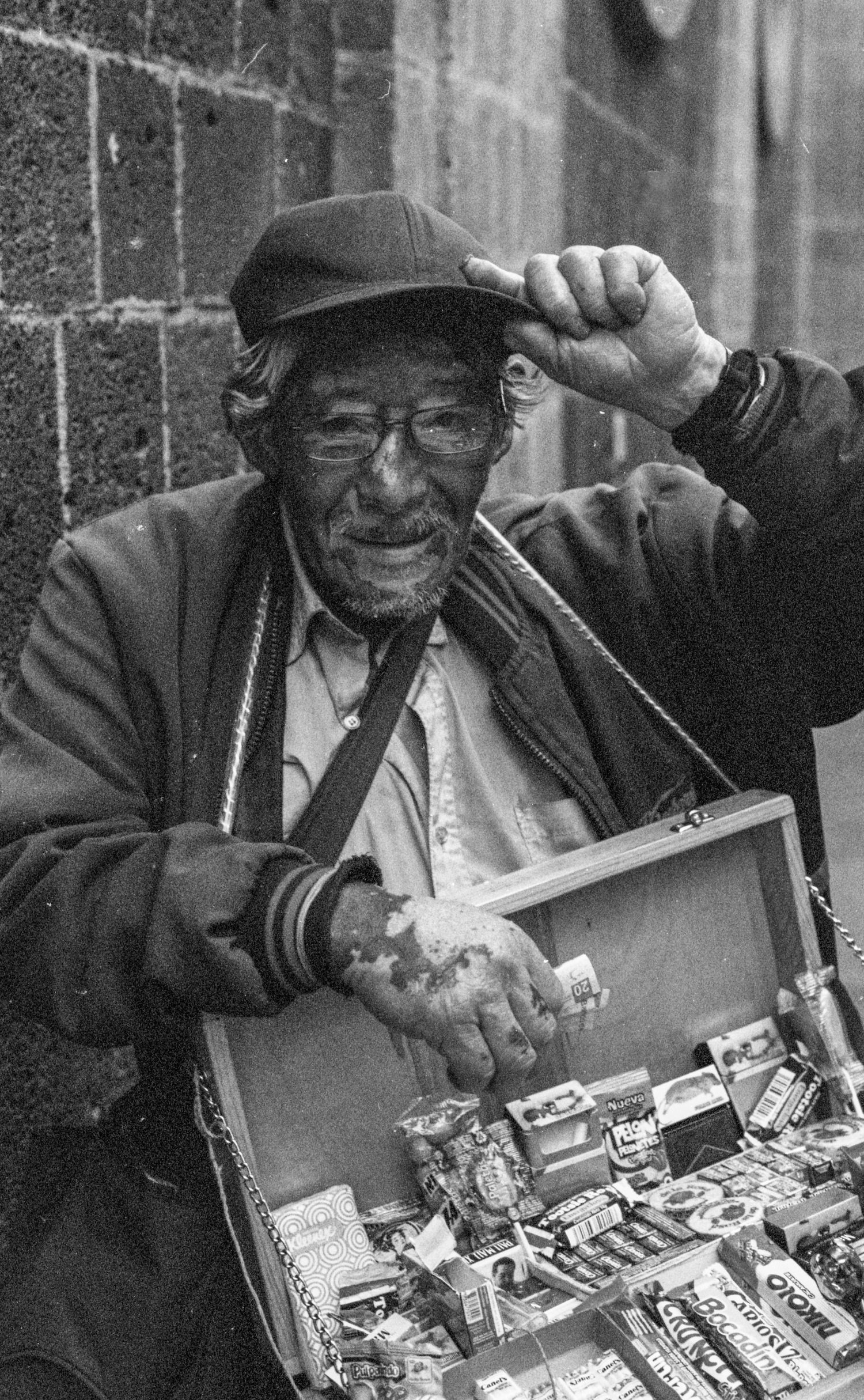Division and disparity on the streets of Mexico City
- Text by Frankie Mills
- Photography by Frankie Mills

Mexico City is a place of extremities, with a brutal class gap that dictates the attitudes and survival of its residents.
I was fortunate to be given the opportunity to study at one of the city’s universities as part of an exchange program. The attitudes of the students about their own city, however, were not what I expected. I was met with people that were too scared to explore and instead were chaperoned from home to school to bars by private chauffeurs. These students received around-the-clock protection, from what was painted as a dangerous outside world.
The more I started to explore the city, the more depth I found in what survival meant to different people. For some, it meant camping outside of their homes because the Mexican government has imposed “essential maintenance repairs”, often resulting in houses being seized and sold, and families being left without a roof over their heads. On the other end of the spectrum, people debated whether or not they should take their private helicopter across town if the traffic was particularly bad that day.

For the poorest, existence depended on the 50 centavos (2p) that selling packets of puffed amaranto would bring in. Some sold organic doggie treats in the city’s more affluent areas, where the rich strolled by pushing their pets in pink prams. Some sold their bodies; some sold the bodies of others. In Tepito, a famous market in the city, I was told it was possible to buy anything you wanted – a passport, a dolphin, a pair of pickled eyeballs.
In Mexico City, just 1 percent of the population earns 21 percent of the country’s entire income. Those who haven’t been born into this wealthy elite are consistently pushed to create their own means of survival – which often involves endless, consistent selling.

Eventually, I made the decision to leave the university and explore Mexico City on my own terms. During this time, I discovered the infinite endurance in people who have faced corruption on multiple fronts – from police officers who are only interested in the money in your wallet, to property seizures and continual disappearances.
One such case includes the disappearance of 43 students in 2014, who have not been seen since police in the state of Iguala made an attack on their vehicle on their way to a peaceful annual demonstration commemorating a student massacre in 1968. This case remains unsolved today – a theme in Mexico that is far from uncommon.
It was incidents such as the disappearance of the 43 that made me wonder exactly who students enwrapped in wealth sought protection from: those simply outside of their social sphere, or those that the rest of the population spent their days either fighting against, or surviving in spite of.







 See more of Frankie Mills’ work on her official website.
See more of Frankie Mills’ work on her official website.
Enjoyed this article? Like Huck on Facebook or follow us on Twitter.
Latest on Huck

Analogue Appreciation: lullahush
Ithaca — In an ever more digital, online world, we ask our favourite artists about their most cherished pieces of physical culture. Today, it’s Irish retro-futurist lullahush.
Written by: lullahush

Spyros Rennt captures connection and tenderness among Berlin’s queer youth
Intertwined — In the Greek photographer’s fourth photobook, he lays out spreads of togetherness among his friends and the German capital’s LGBTQ+ party scene.
Written by: Isaac Muk

The rebellious roots of Cornwall’s surfing scene
100 years of waveriding — Despite past attempts to ban the sport from beaches, surfers have remained as integral, conservationist presences in England’s southwestern tip. A new exhibition in Falmouth traces its long history in the area.
Written by: Ella Glossop

Plestia Alaqad: “Journalists should focus on humanising people”
Huck’s April interview — Having become one of the most crucial and followed voices from inside Gaza in the aftermath of October 7, the award-winning author and journalist is releasing a new memoir, ‘The Eyes of Gaza’, collating diary entries made over the past 18 months. We caught up with her to hear more about it.
Written by: Isaac Muk

The instrument makers taking DIY music to a whole new level
What does it take to construct a modular synth? How do you turn a block of wood into a double bass? Here, four craftspeople explain why they chose to rip up the rulebooks and build their own music-making machines.
Written by: Daniel Dylan Wray

Southbank Centre reveals new series dedicated to East and Southeast Asian arts
ESEA Encounters — Taking place between 17-20 July, there will be a live concert from YMO’s Haruomi Hosono, as well as discussions around Asian literature, stage productions, and a pop-up Japanese Yokimono summer market.
Written by: Zahra Onsori